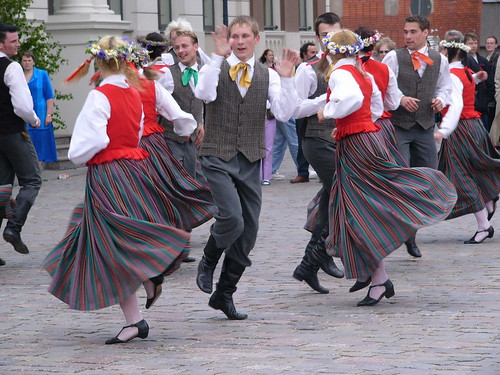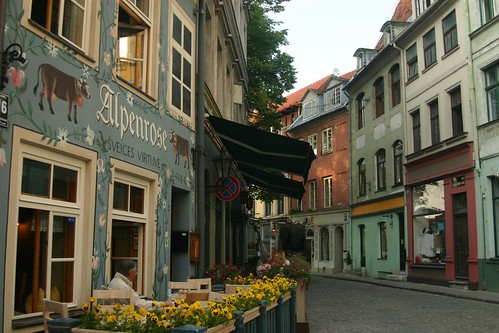Difference between revisions of "Adopting from Latvia"
(→Hague Convention Information) |
|||
| Line 42: | Line 42: | ||
=Hague Convention Information= | =Hague Convention Information= | ||
| + | Latvia is party to the Hague Convention on Protection of Children and Co-operation in Respect of Intercountry [[Adoption]] ([http://adoption.state.gov/hague_convention/overview.php Hague Adoption Convention]). Intercountry [[adoption]] processing in Hague countries is done in accordance with the requirements of the Convention; the U.S. implementing legislation, the Intercountry [[Adoption]] Act of 2000 (IAA); and the IAA’s implementing regulations, as well as the implementing legislation and regulations of Latvia. | ||
| + | |||
| + | |||
| + | Latvia is party to the Hague Convention on Protection of Children and Co-operation in Respect of Intercountry [[Adoption]] ([http://adoption.state.gov/hague_convention/overview.php Hague Adoption Convention]). Therefore, all adoptions between Latvia and the United States must meet the requirements of the Convention; the U.S. implementing legislation, the Intercountry Act of 2000 (IAA); and the IAA implementing regulations. | ||
| + | |||
| + | |||
| + | General public concern regarding [[adoption]] of Latvian children by foreigners contributes to reluctance to reform intercountry [[adoption]] procedures, which currently require several extended trips by [[Adoptive Parents|adoptive parents]] to Latvia to complete the requirements. In addition, the Latvian government has announced that it will approve applications for intercountry [[adoption]] only if the [[Adoptive Parents|adoptive parents]] file to [[adopt]] a sibling group of three or more children; a child over age 9; a child with severe health problems; or a child released for intercountry [[adoption]] because he or she has not been [[adopted]] by Latvians. | ||
| + | |||
| + | |||
| + | '''NOTE:''' Special transition provisions apply to adoptions initiated before April 1, 2008. Read about Transition Cases. | ||
| + | |||
| + | |||
| + | '''U.S. IMMIGRATION REQUIREMENTS FOR INTERCOUNTRY ADOPTIONS''' | ||
| + | |||
| + | |||
| + | To bring an [[adopted]] child to the United States from Latvia, you must meet [http://adoption.state.gov/adoption_process/who_can_adopt/eligibility.php eligibility and suitability requirements]. The U.S. Department of Homeland Security, U.S. Citizenship and Immigration Services (USCIS) determines [http://adoption.state.gov/adoption_process/who.php who can adopt] under U.S. immigration law. | ||
| + | |||
| + | |||
| + | Additionally, a child must meet the [http://cfr.vlex.com/vid/204-301-definitions-286271915 definition of Convention adoptee] under U.S. law in order to immigrate to the United States on an IH-3 or IH-4 immigrant visa. | ||
=Who Can Adopt= | =Who Can Adopt= | ||
Revision as of 21:05, 26 March 2014
Contents
Latvia Adoption Alert
Notice: Post-adoption reporting requirements (April 5, 2011)
This Adoption Notice replaces the Adoption Notice dated May 25, 2010, on post-adoption reporting requirements for Latvia. Latvia requires periodic post-adoption reporting on the welfare of an adopted orphan in his or her new American family. Latvian law requires that two post-adoption reports be submitted: one after the first year following adoption and one after the second year. The reports should be conducted by the adoptive family's adoption agency. The intercountry adoption process requires compliance with the laws of both the United States and the child's country of origin. While the United States cannot enforce the laws of another country, in order for a strong country-to-country partnership on adoption matters to continue, families and agencies should respect the adoption laws of the child's country of origin. We strongly encourage agencies to comply with Latvian post-adoption reporting requirements and to submit reports on time. All agencies operating in Latvia have been notified of this requirement. Compliance will help ensure that Latvia's history of positive experiences with American adoptive families continues.
Notice: Post-adoption reporting requirements (May 25, 2010)
Latvia requires periodic post-adoption reporting on the welfare of an adopted orphan in his or her new American family. Latvian law requires that two post-adoption reports be submitted: one after the first year following adoption and one after the second year. The reports should be conducted by the adoptive family's adoption agency.
The intercountry adoption process requires compliance with the laws of both the United States and the child's country of origin. While the United States cannot enforce the laws of another country, in order for a strong country-to-country partnership on adoption matters to continue, families and agencies should respect the adoption laws of the child's country of origin. We strongly encourage agencies to comply with Latvian post-adoption reporting requirements and to submit reports on time. All agencies operating in Latvia have been notified of this requirement. Compliance will help ensure that Latvia's history of positive experiences with American adoptive families continues.
Hague Convention Information
Latvia is party to the Hague Convention on Protection of Children and Co-operation in Respect of Intercountry Adoption (Hague Adoption Convention). Intercountry adoption processing in Hague countries is done in accordance with the requirements of the Convention; the U.S. implementing legislation, the Intercountry Adoption Act of 2000 (IAA); and the IAA’s implementing regulations, as well as the implementing legislation and regulations of Latvia.
Latvia is party to the Hague Convention on Protection of Children and Co-operation in Respect of Intercountry Adoption (Hague Adoption Convention). Therefore, all adoptions between Latvia and the United States must meet the requirements of the Convention; the U.S. implementing legislation, the Intercountry Act of 2000 (IAA); and the IAA implementing regulations.
General public concern regarding adoption of Latvian children by foreigners contributes to reluctance to reform intercountry adoption procedures, which currently require several extended trips by adoptive parents to Latvia to complete the requirements. In addition, the Latvian government has announced that it will approve applications for intercountry adoption only if the adoptive parents file to adopt a sibling group of three or more children; a child over age 9; a child with severe health problems; or a child released for intercountry adoption because he or she has not been adopted by Latvians.
NOTE: Special transition provisions apply to adoptions initiated before April 1, 2008. Read about Transition Cases.
U.S. IMMIGRATION REQUIREMENTS FOR INTERCOUNTRY ADOPTIONS
To bring an adopted child to the United States from Latvia, you must meet eligibility and suitability requirements. The U.S. Department of Homeland Security, U.S. Citizenship and Immigration Services (USCIS) determines who can adopt under U.S. immigration law.
Additionally, a child must meet the definition of Convention adoptee under U.S. law in order to immigrate to the United States on an IH-3 or IH-4 immigrant visa.
Who Can Adopt
Residency
Age of Adopting Parents
Marriage
Income
Other
Who Can Be Adopted
How to Adopt
Adoption Authority
The Process
Traveling Abroad
After Adoption
SOURCE
Intercountry Adoption, Bureau of Consular Affairs. U.S. Department of State Country Information










